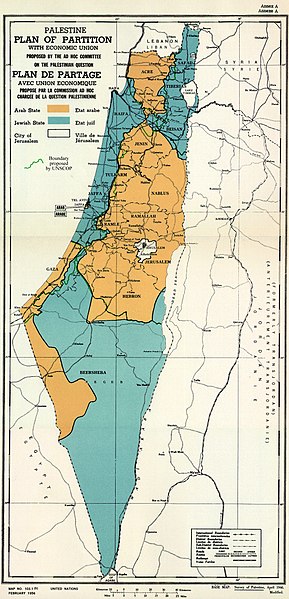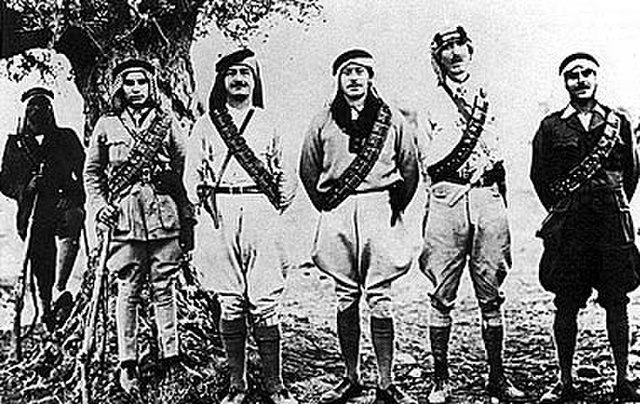The Nakba was the ethnic cleansing of Palestinians in Mandatory Palestine during the 1948 Palestine war through their violent displacement and dispossession of land, property, and belongings, along with the destruction of their society, culture, identity, political rights, and national aspirations. The term is also used to describe the ongoing persecution and displacement of Palestinians by Israel. As a whole, it covers the fracturing of Palestinian society and the long-running rejection of the right of return for Palestinian refugees and their descendants.
A Palestinian watches over a school in a refugee camp, 1948.
The UN Partition Plan for Palestine in 1947
1948 expulsion of the Tantura women and children to Furaydis
Image: مسيرة العودة الى قرية الحدثة المهجرة 2015
The 1948 Palestine war was fought in the territory of what had been, at the start of the war, British-ruled Mandatory Palestine. During the war, the British withdrew from Palestine, Zionist forces conquered territory and established the State of Israel, and over 700,000 Palestinians fled or were expelled. It was the first war of the Israeli–Palestinian conflict and the broader Arab–Israeli conflict.
Arab fighters in front of a burning Haganah armoured supply truck near the city of Jerusalem (c. 1948)
Fawzi al-Qawuqji (third from the right) in 1936
Aftermath of the Ben Yehuda Street bombing, February 1948
Destroyed buildings in the Manshiya quarter of Jaffa, May 1948








